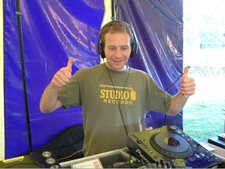Friday, March 23, 2007
In 'loving' memory of a fascist
He was a supporter of Hitler and ordered the deportation of 700,000 Slovak Jews to Germany in March 1942. To mark the anniversary, 150 young neo-Nazis and older-generation Slovaks gathered to his grave. According to a recent survey, 16% of Slovaks believed that he did a lot for Slovakia. Yet over 40% of Slovaks condemned Tiso's support for Hitler and the fact that he declared war on Britain and America.
Monday, March 19, 2007
Kosice: Full of Eastern Promise



One of the nicest things about Kosice is that it is so compact that you don't need to take any buses or trams anywhere. Just hop off the train and the old town is 5 minutes away. What's more, it's old town is a lot better kept than Bratislava. There is less graffiti than in Bratislava and its buildings in the old town are well-preserved.
By train, it takes about 6 hours to get there. I travelled on the painfully uncomfortable, dirty and slow night train from Bratislava, which cost me about 600sk.
Sunday, March 11, 2007
Rip-off merchant bankers

The last couple of months have seen many newspaper reports about how British banks have been overcharging its customers with hefty overdraft fees. Banks have been charging customers £30 a time every time they go over their overdraft limits. According to consumer watchdogs, British banks have been acting illegally. As a result, people have been claiming back such charges.
However, there is one thing to be said about British banks: They don't charge people for having money in the bank, providing they are in credit. In Slovakia and the Czech Republic, however, the banks sting you for every penny, whether you are in credit or in debt. They charge 100sk for opening an accuont. You get charged extortionate amounts for withdrawing money from their machines. If you withdraw money from a cashpoint machine that isn't from the bank you belong, you get charged even more.
The Tatra Bank in particular are ruthless and crafty with their customers, despite their excellent reputation as an award winning bank. I recently learned about how the bank often adds extra money to people's accounts. This 'extra' money into people's accounts isn't actually theirs. It is a loan that the bank puts into people's accounts, even when they don't ask for it. This is so that they can sting the customers for interest on such loans. This recently happened to me when I found I had 7,000sk more than I actually should.
Despite such charges, most Slovaks seem to grin and bear it and say this is the way it is. When I mentioned to my boss about how such charges may be illegal, she said that the top banks would never act illegally.
Do's and Don'ts.
- DO NOT take out small amounts of money at a time. Instead, take out large sums in one go. This is because they will charge you every time they use the machines.
- DO NOT go for the internet banking option unless you really have to. The fee is very pricey
- DO NOT choose weekly or monthly bank statements. Go for quarterly statements, as they sting you for statements.
Slovakia's Healthcare

My migraine is still killing me, despite having taken strong migraine tablets, the doctor prescribed to me.
I decided to pay a second visit to the village doctor, as my migraine was not getting any better. My boss quickly wrote out a Slovak translation of my problem as the doctor could not speak any English whatsoever. He gave me a quick assessment and summoned me to Bratislava's top neurology department in a 1930s hospital in Americke Namesti, close to the centre .
The hospital waiting room was drab, grey and needed a lick of paint. The stretchers and wheelchairs seemed to date from the 1930s. As the place needed modernising, I wondered what the system was going to be like.
I was fortunate that I only had to wait 30 minutes for an English speaking neurologist to see me. She took my blood pressure and gave me a headscan. Fortunately, the headscan was negative as they could find no blood clot or tumour. She also gave me an x ray on my spine and injected some strong painkiller into my arm. On the whole, I was very impressed with how quickly they dealt with the problem and their good use of English. The neurologist also told me how people in the UK would have to wait for around 6 weeks to see a neurologist as the waiting list his huge.
The next day, I received a phone call from a woman in the village. She told me how concerned she was about my illness. I asked how she knew about this. She said that the village doctor told her everything. Doctors are not supposed to reveal anything, but this doctor couldn't resist bragging about how he dealt with an English patient. Although Slovaks tend to be reserved to foreigners, they apparently like to gossip and find out about other peoples' business.



